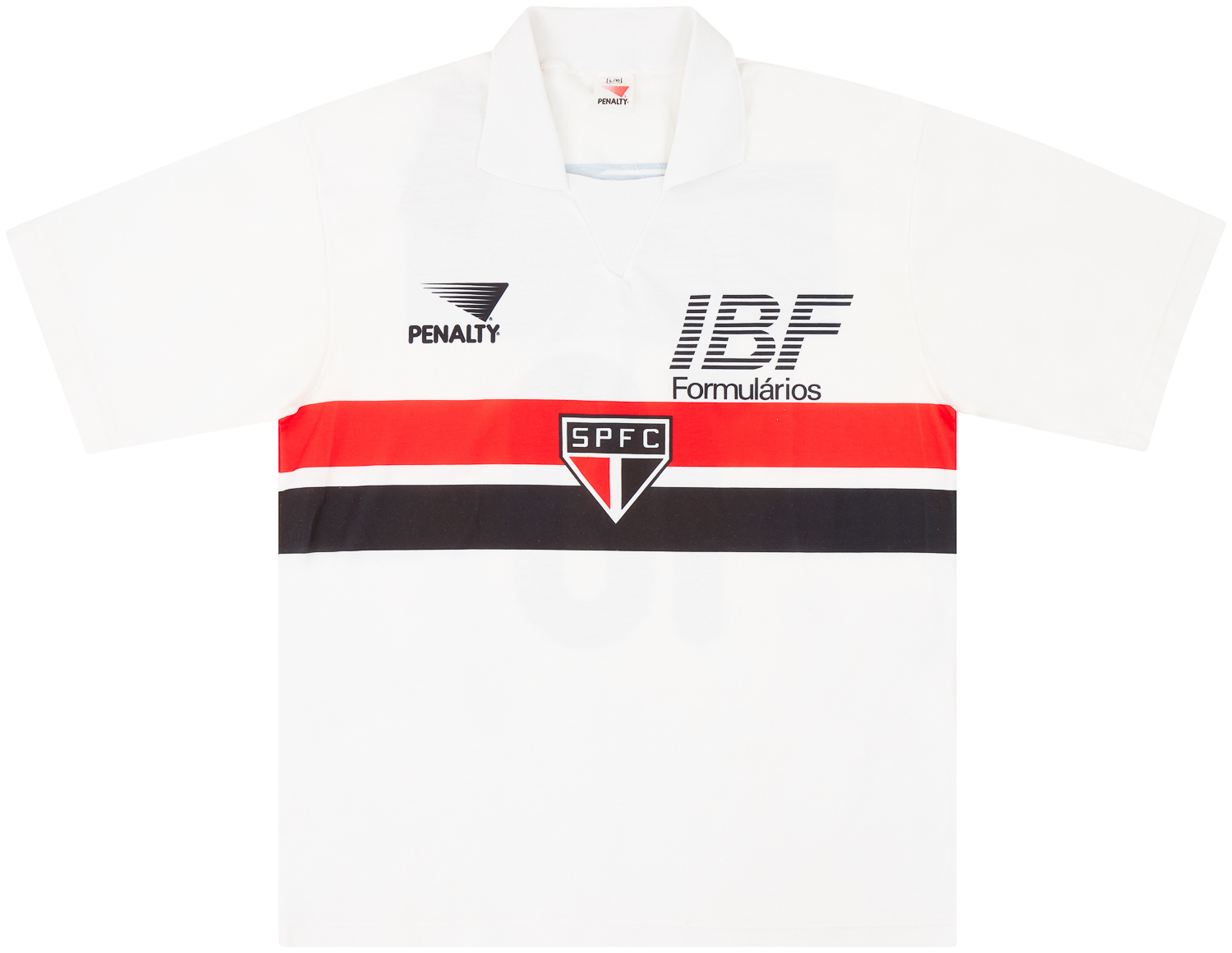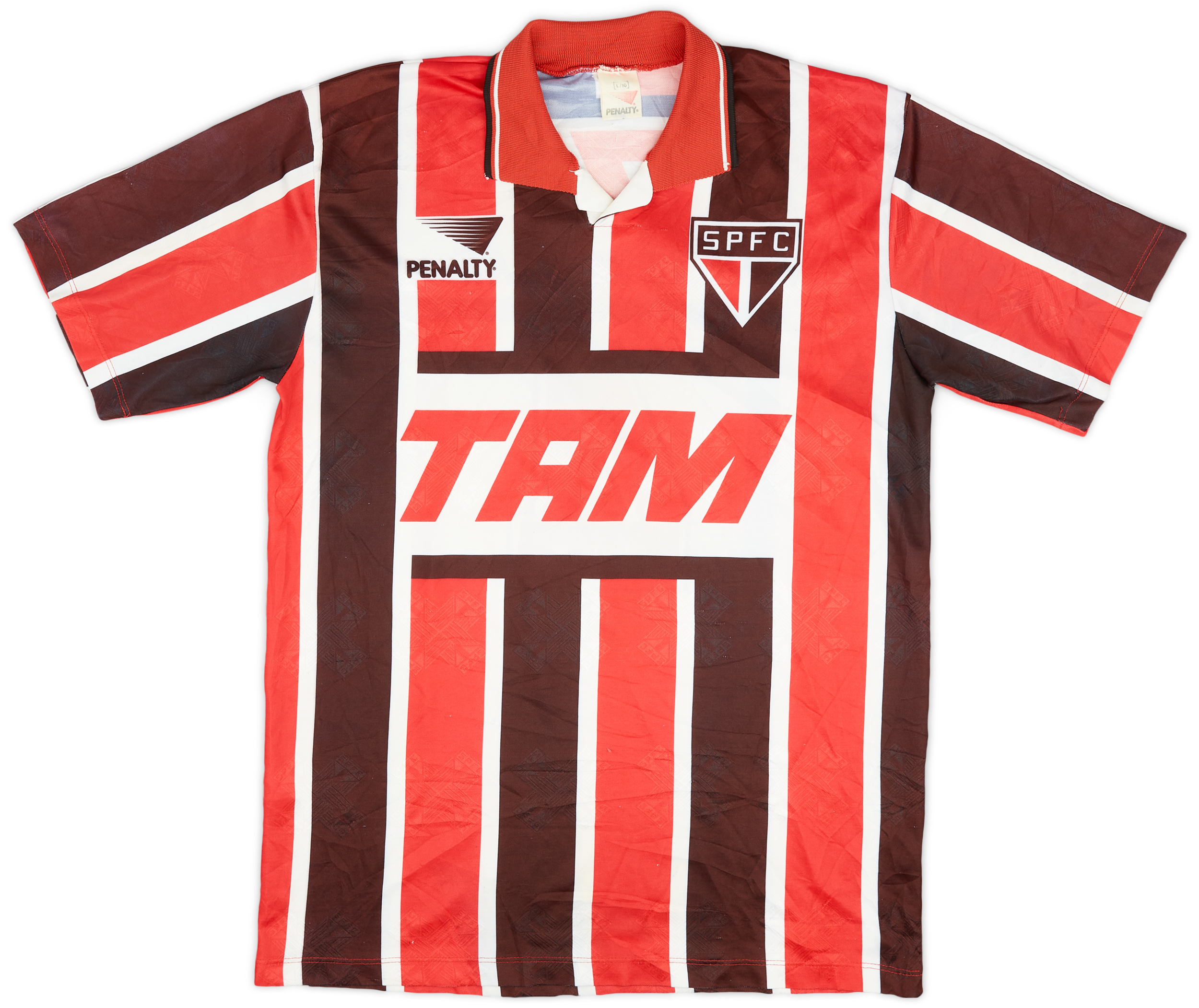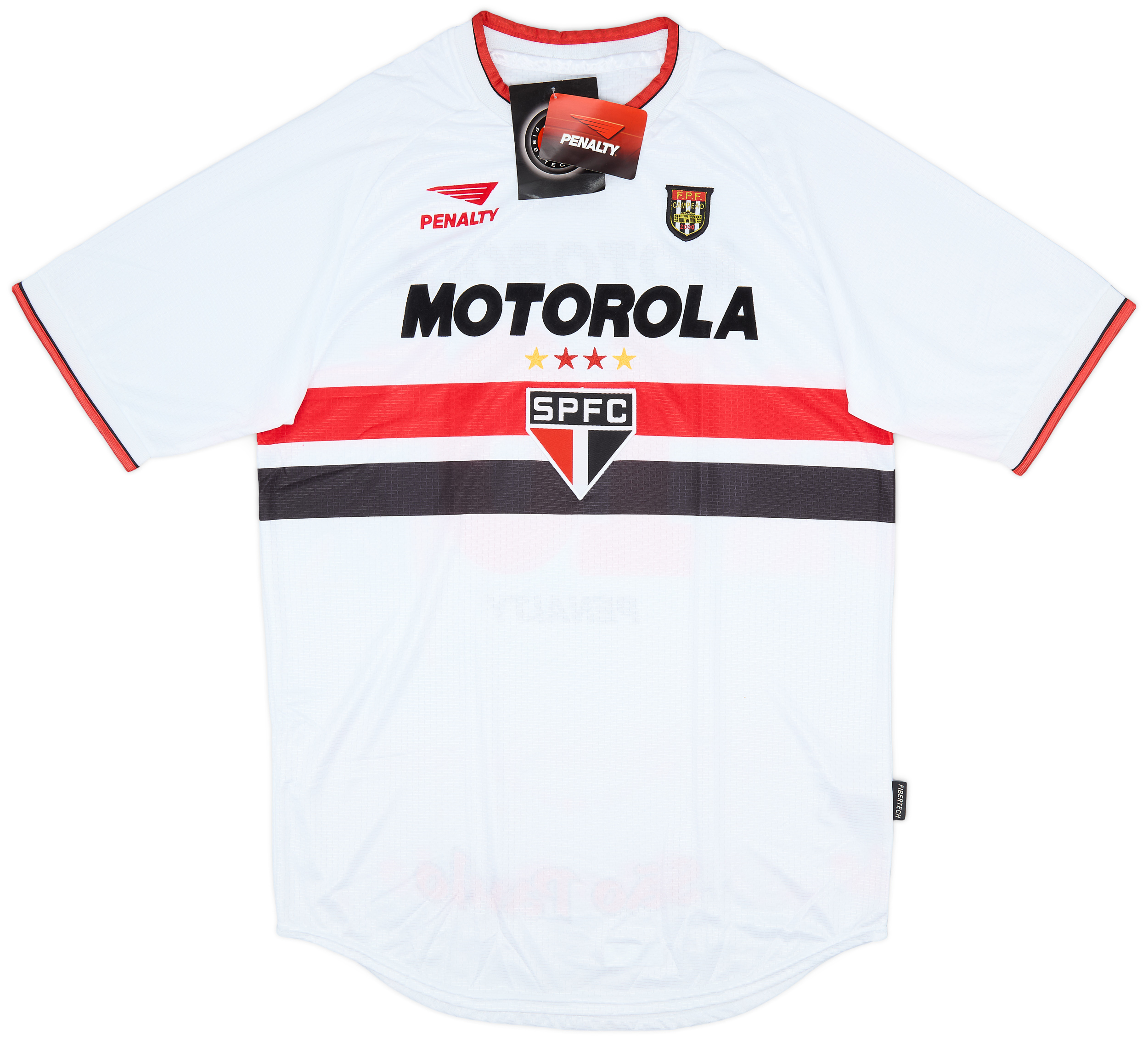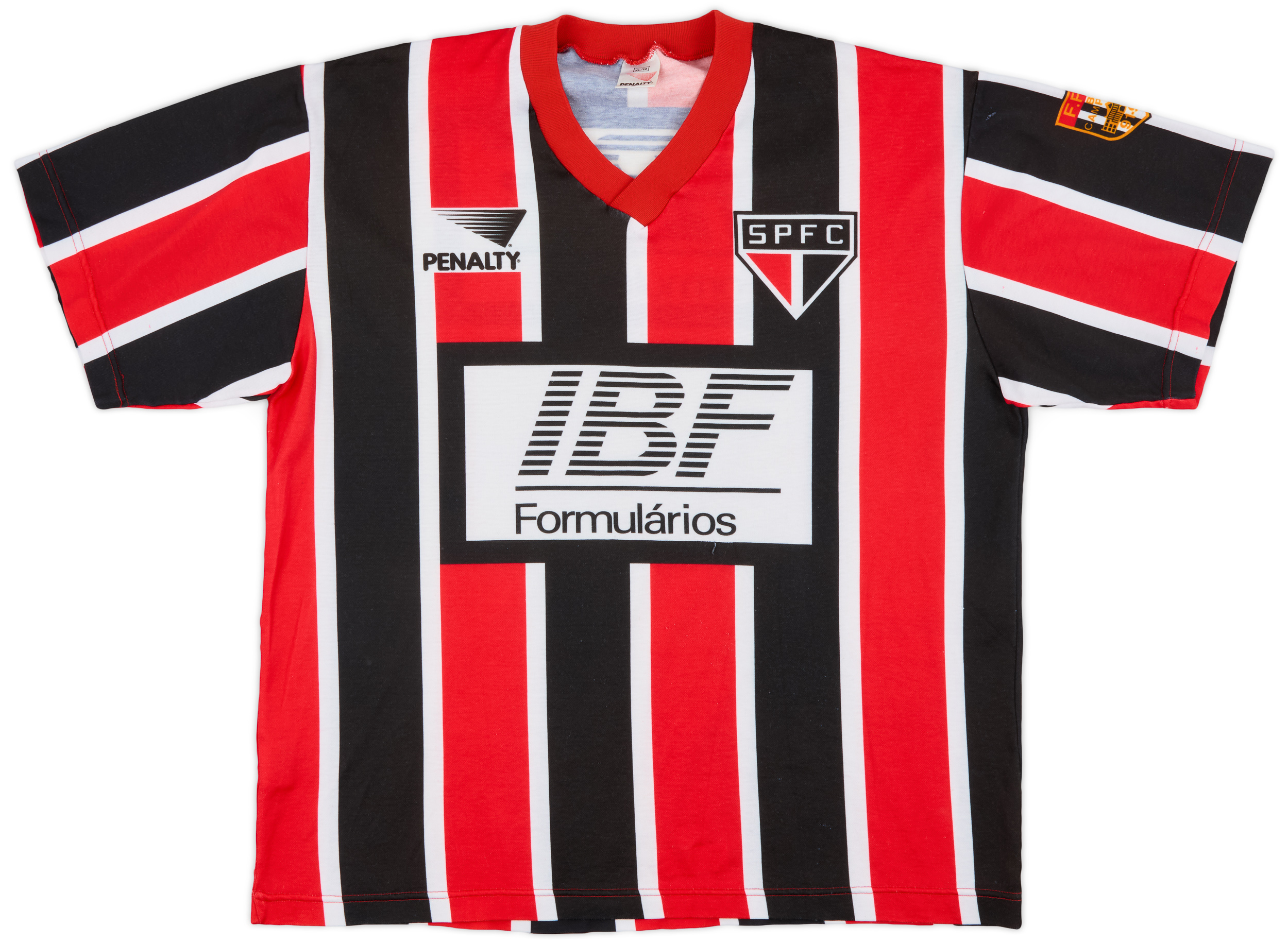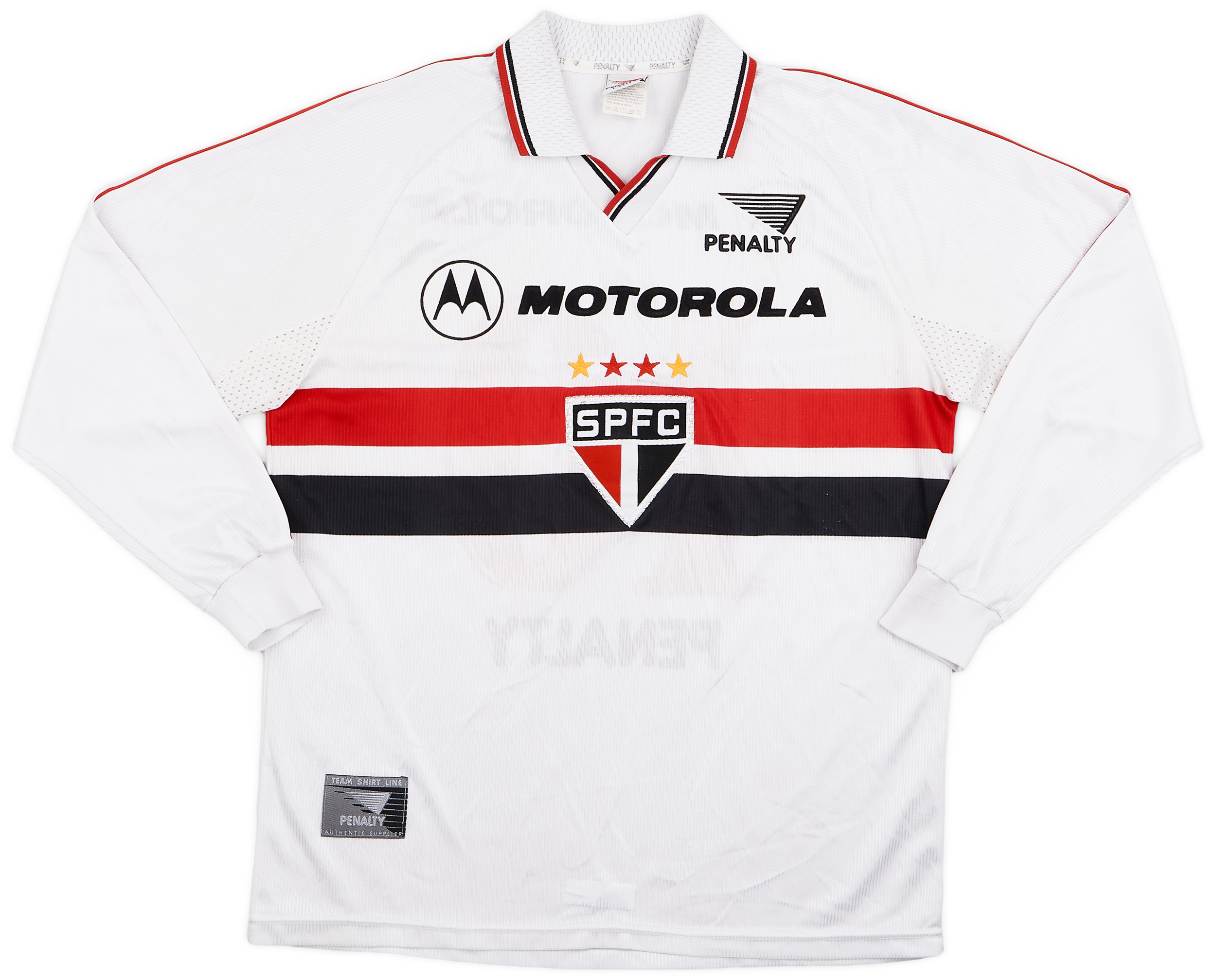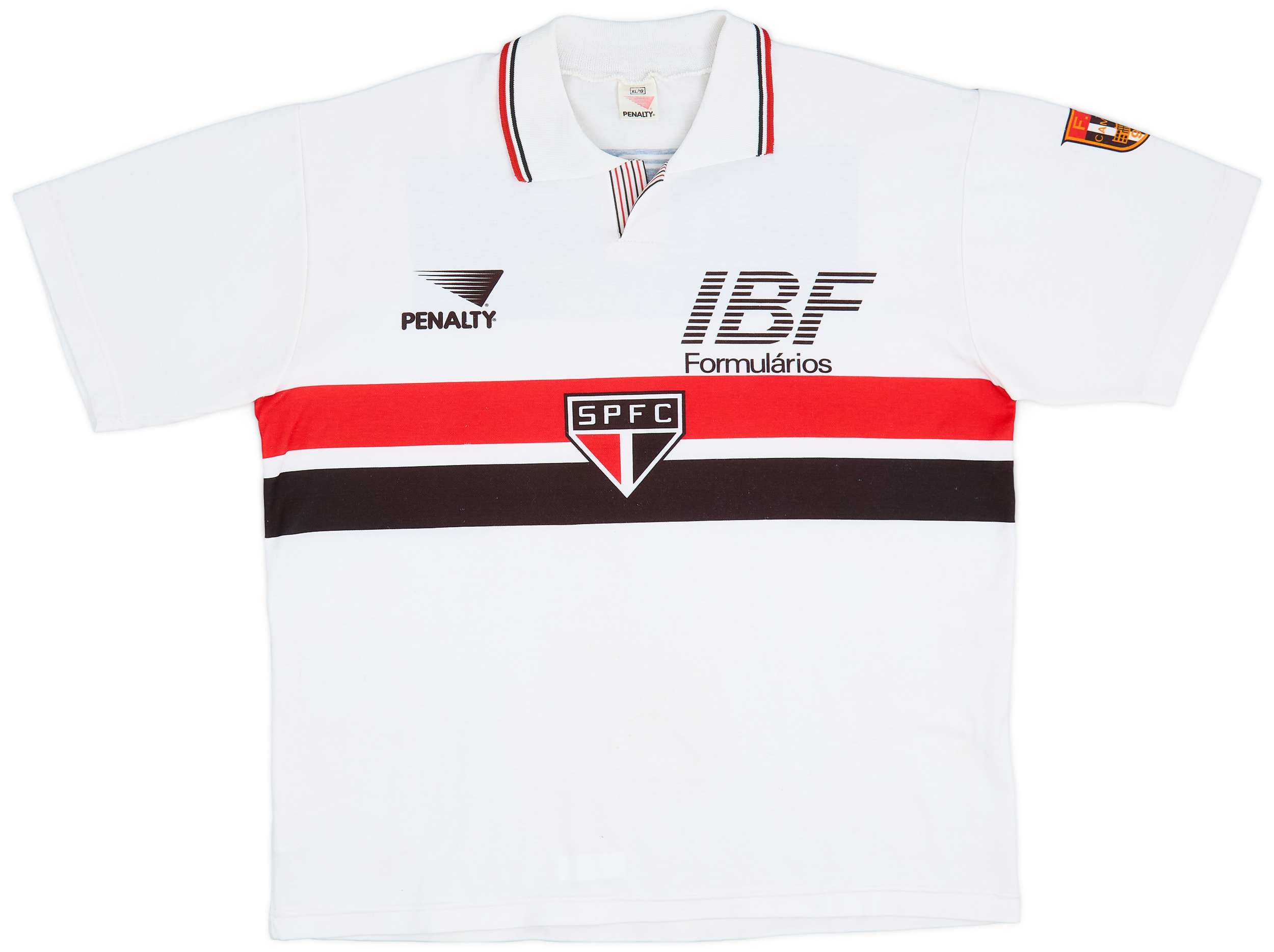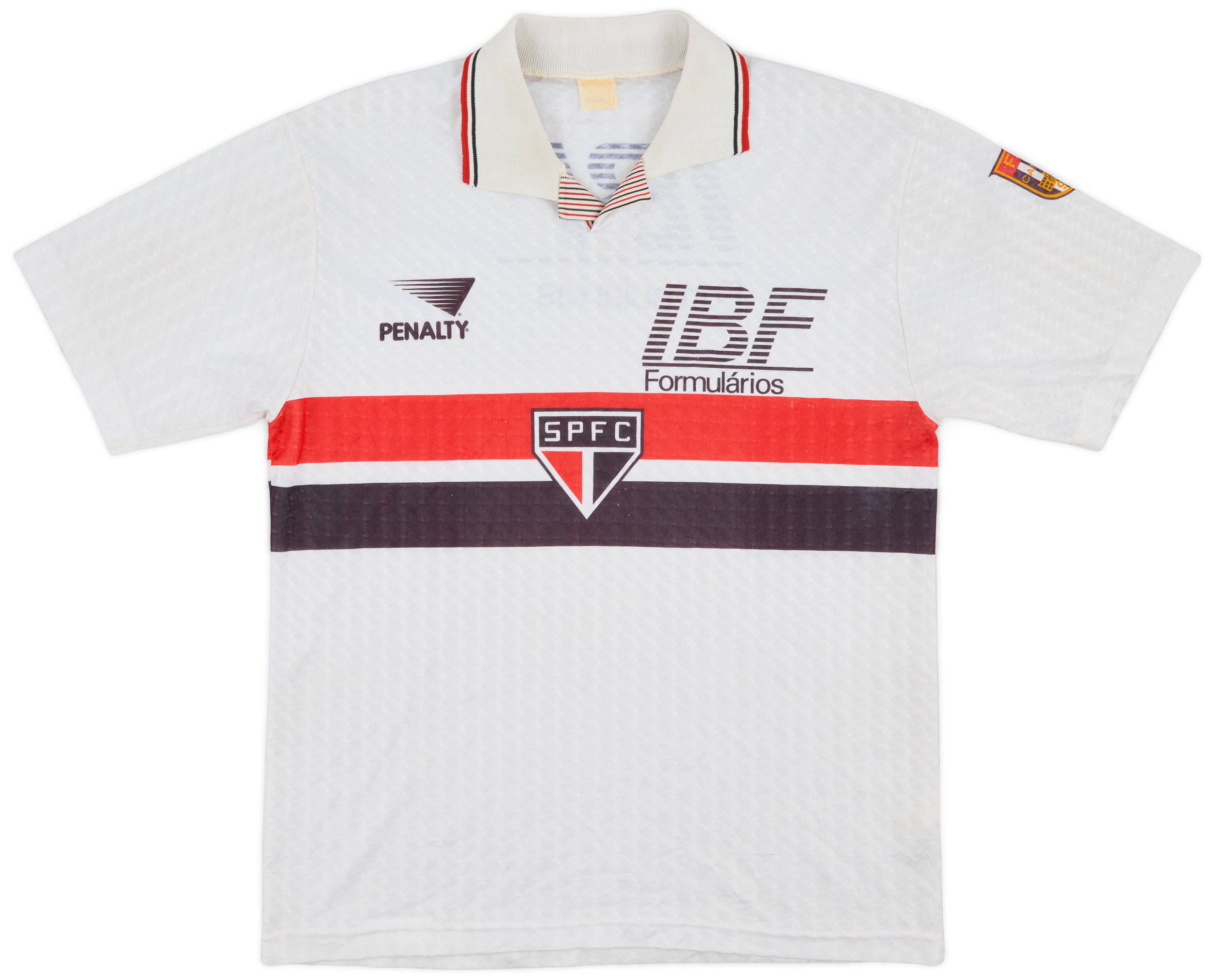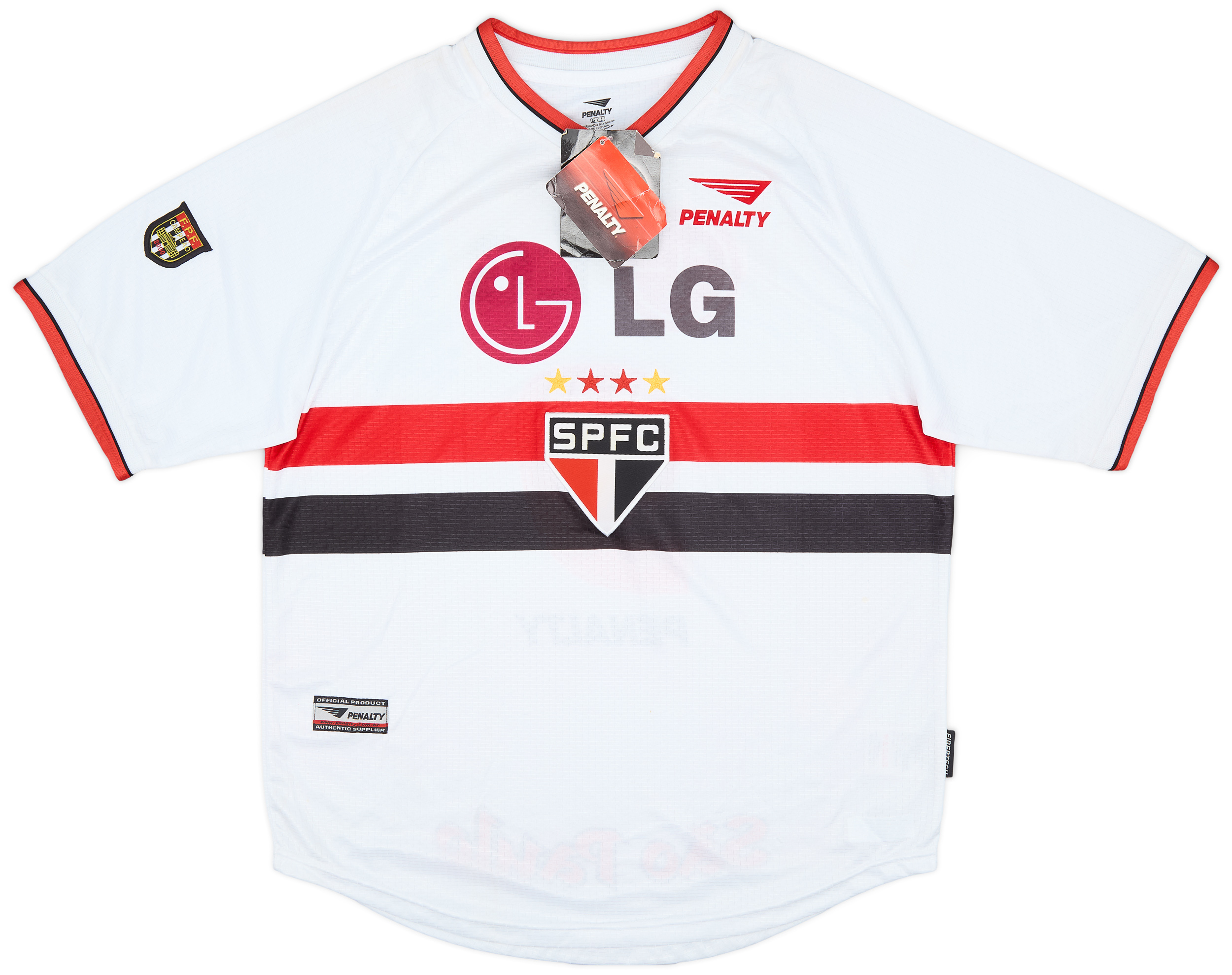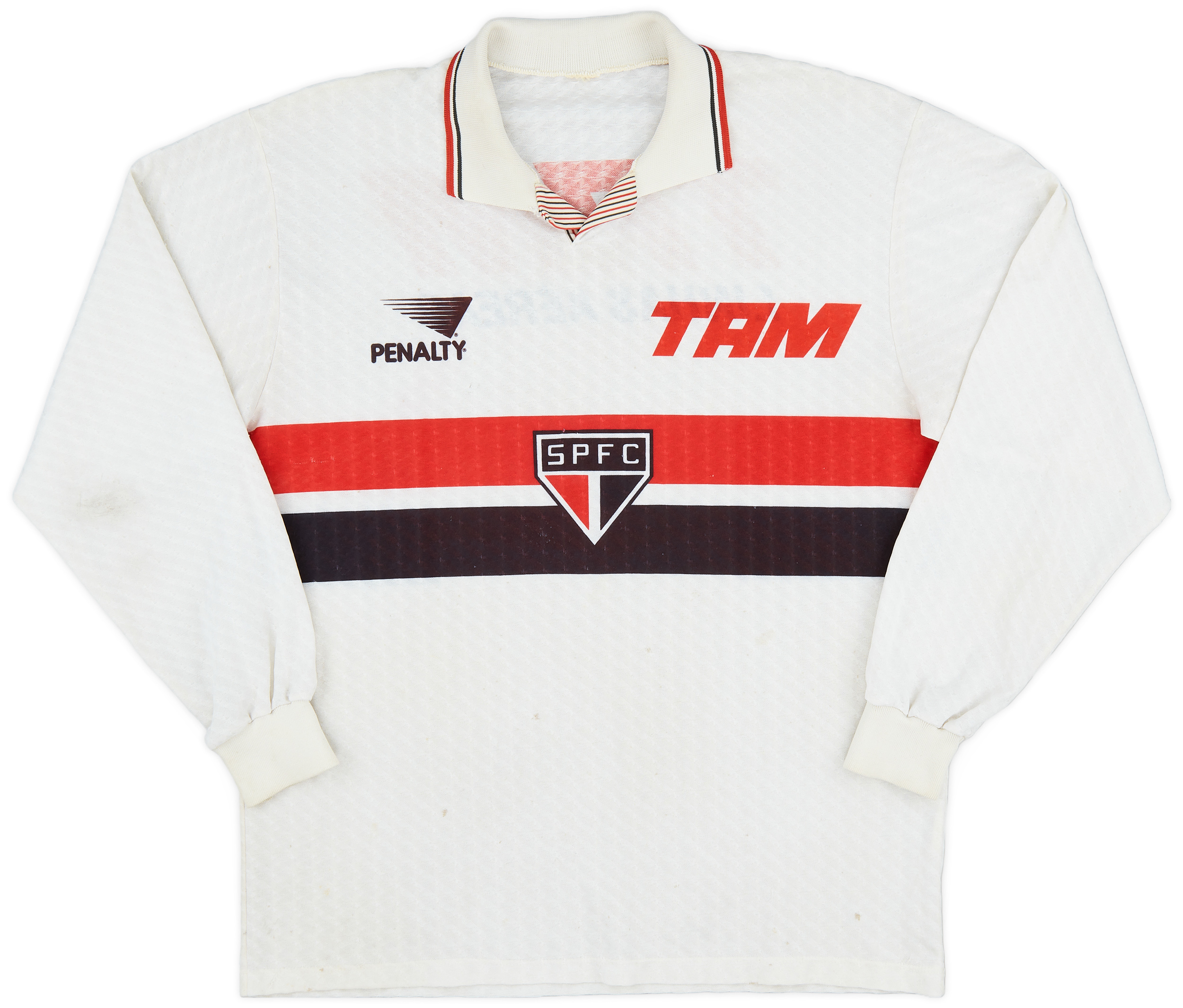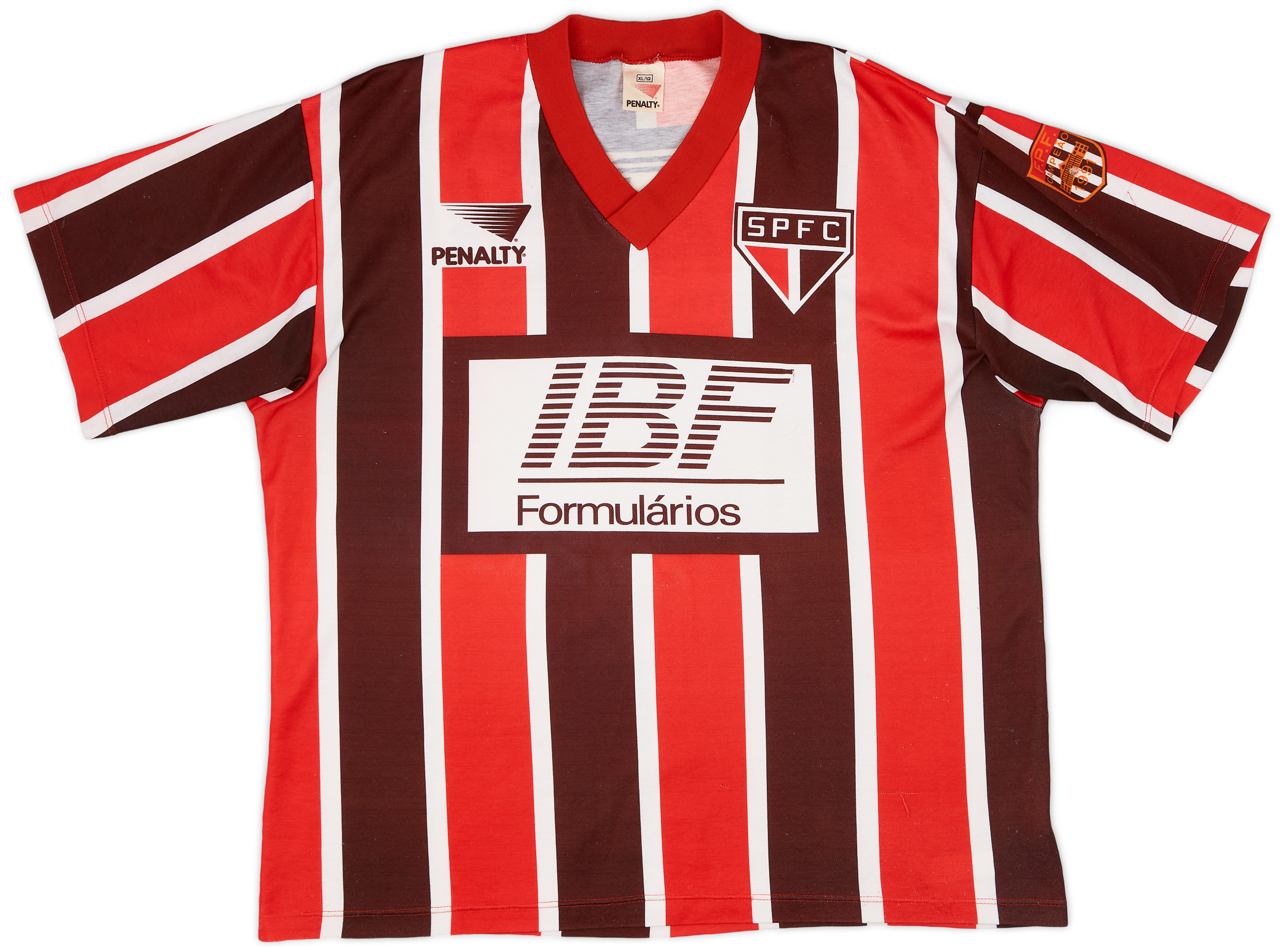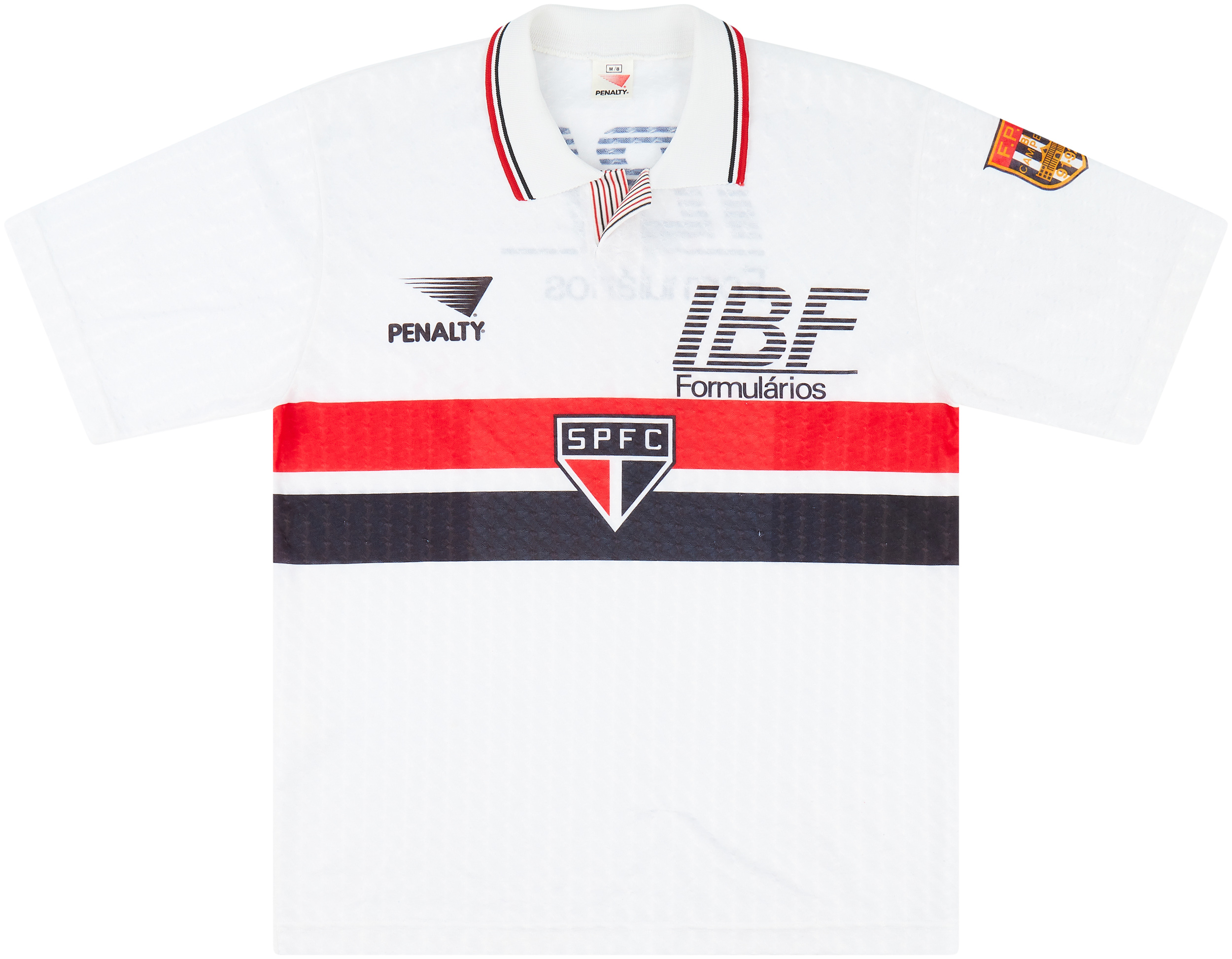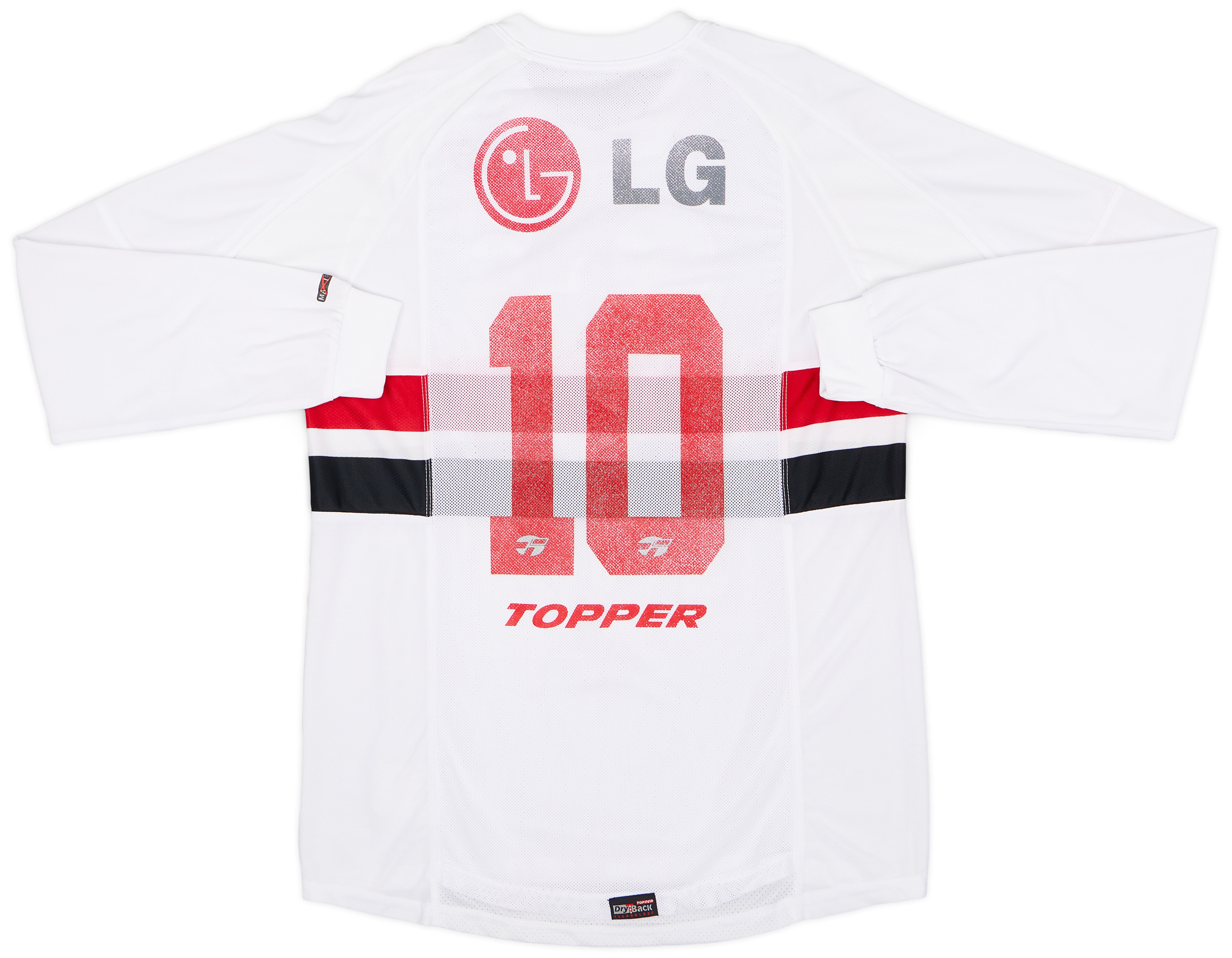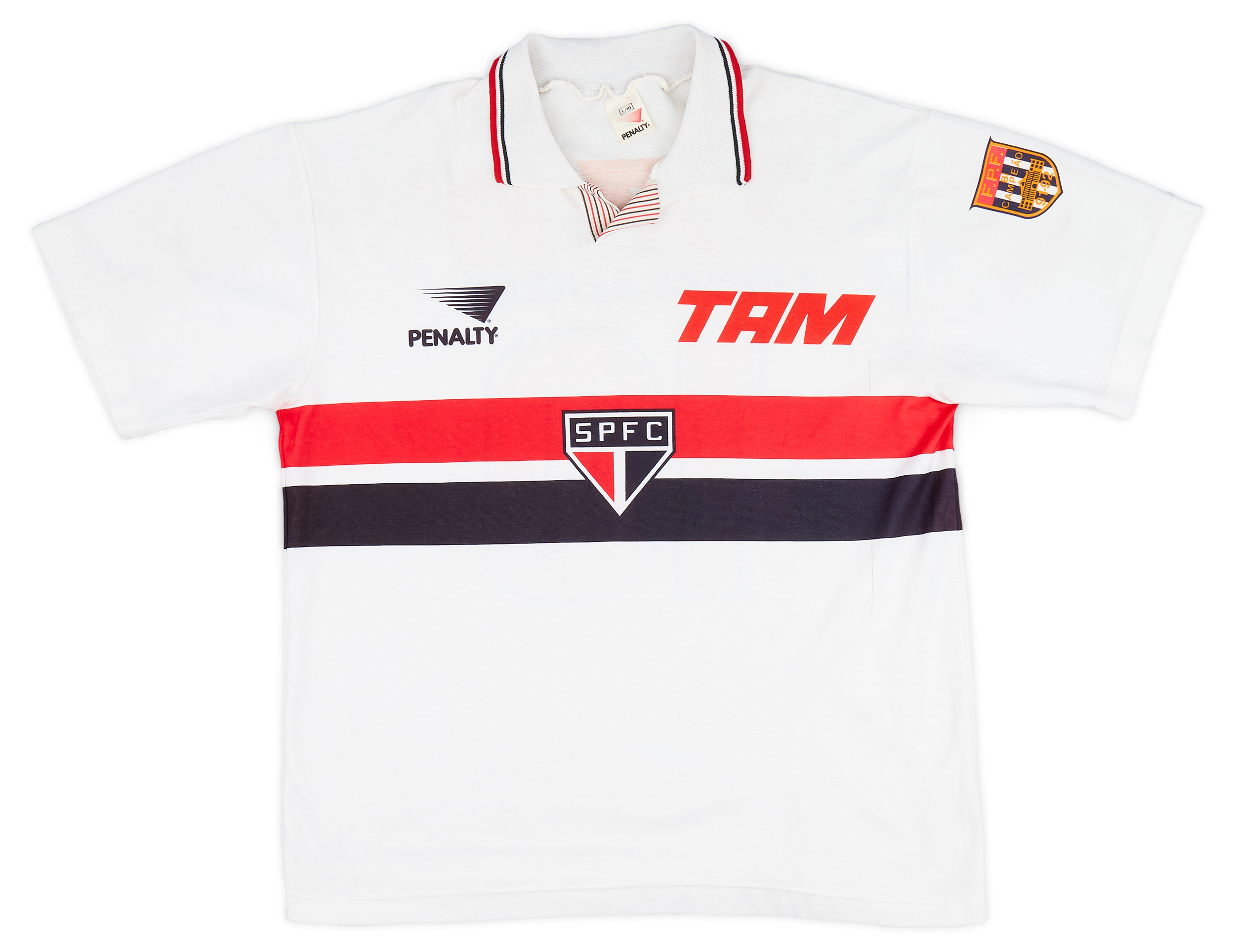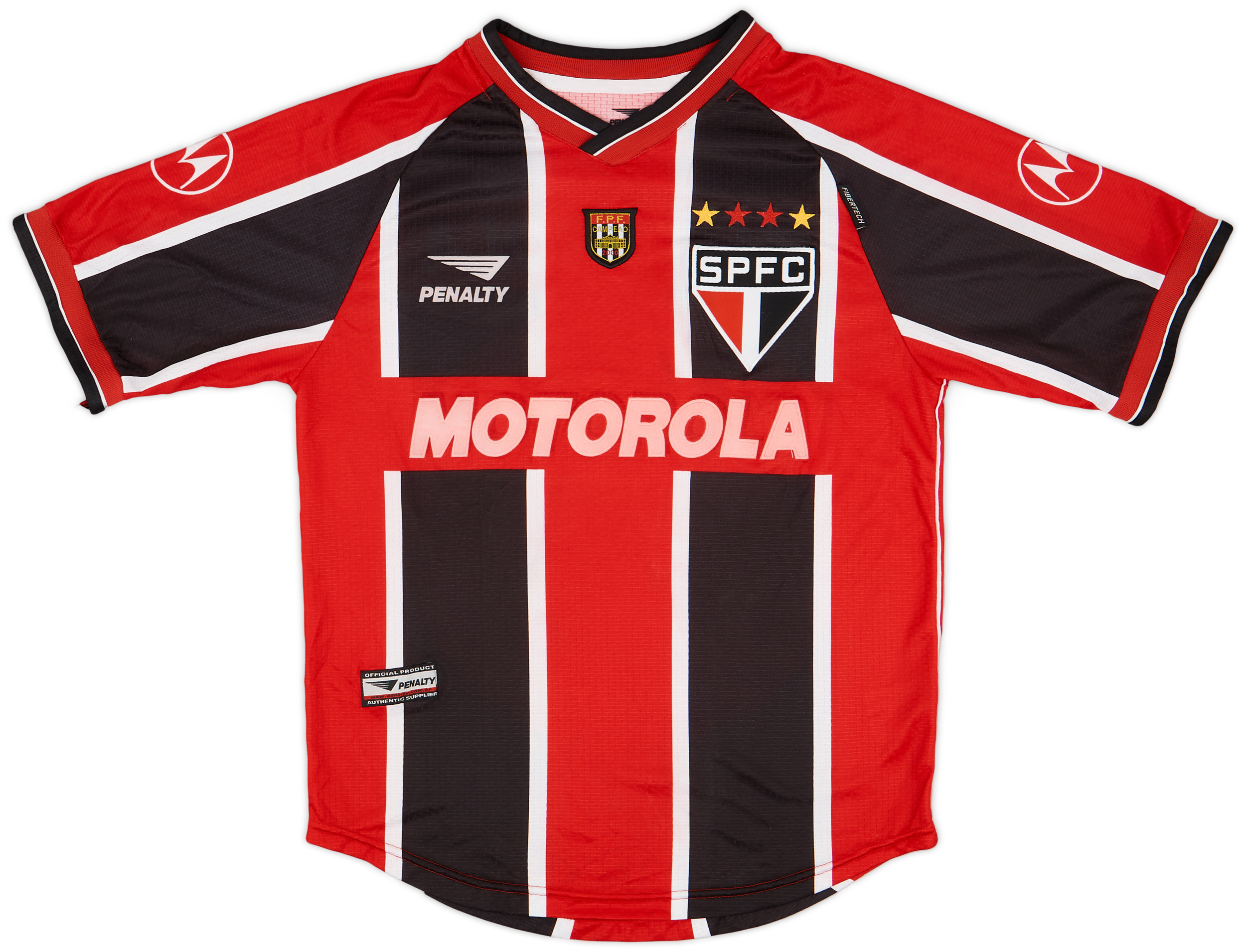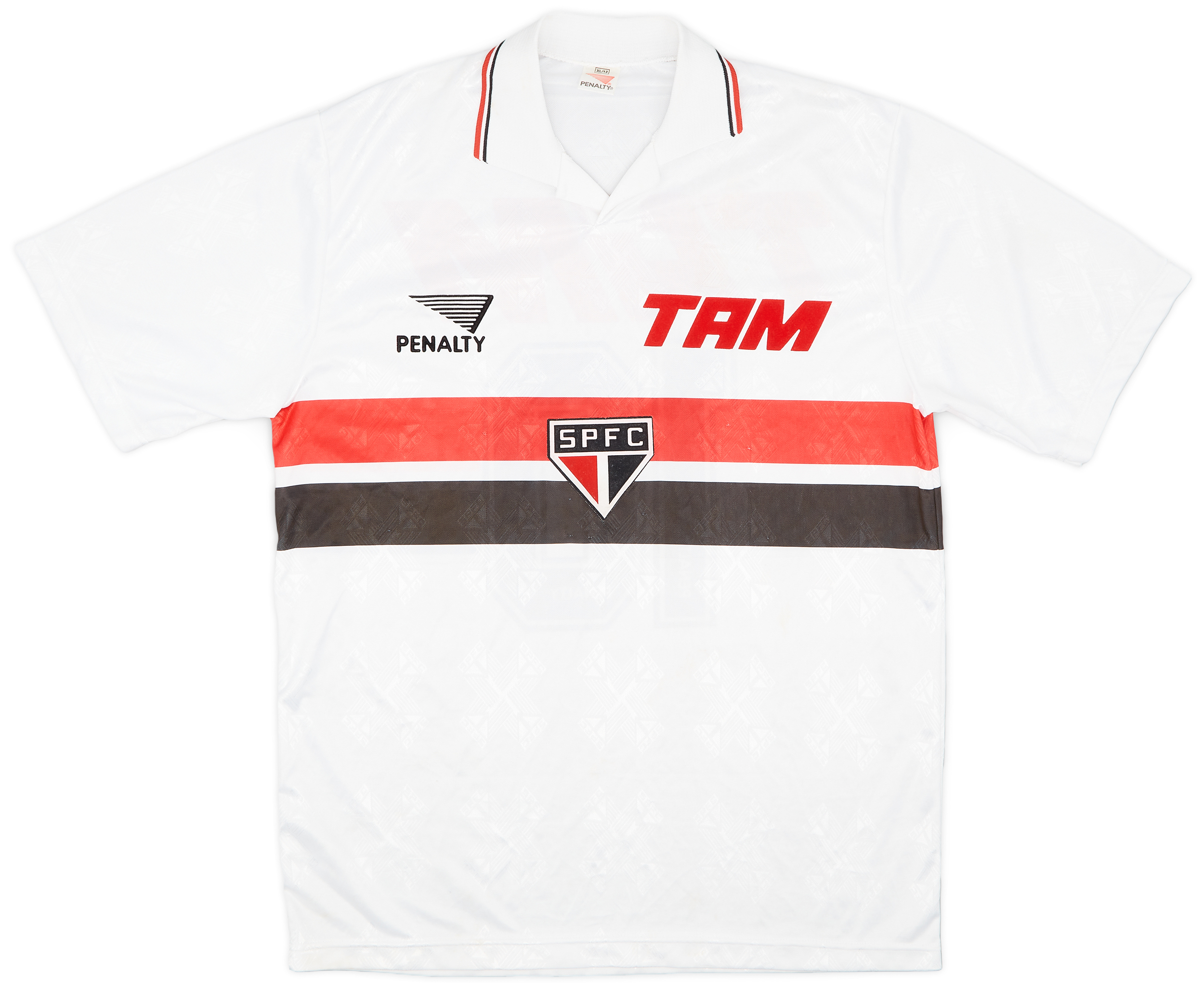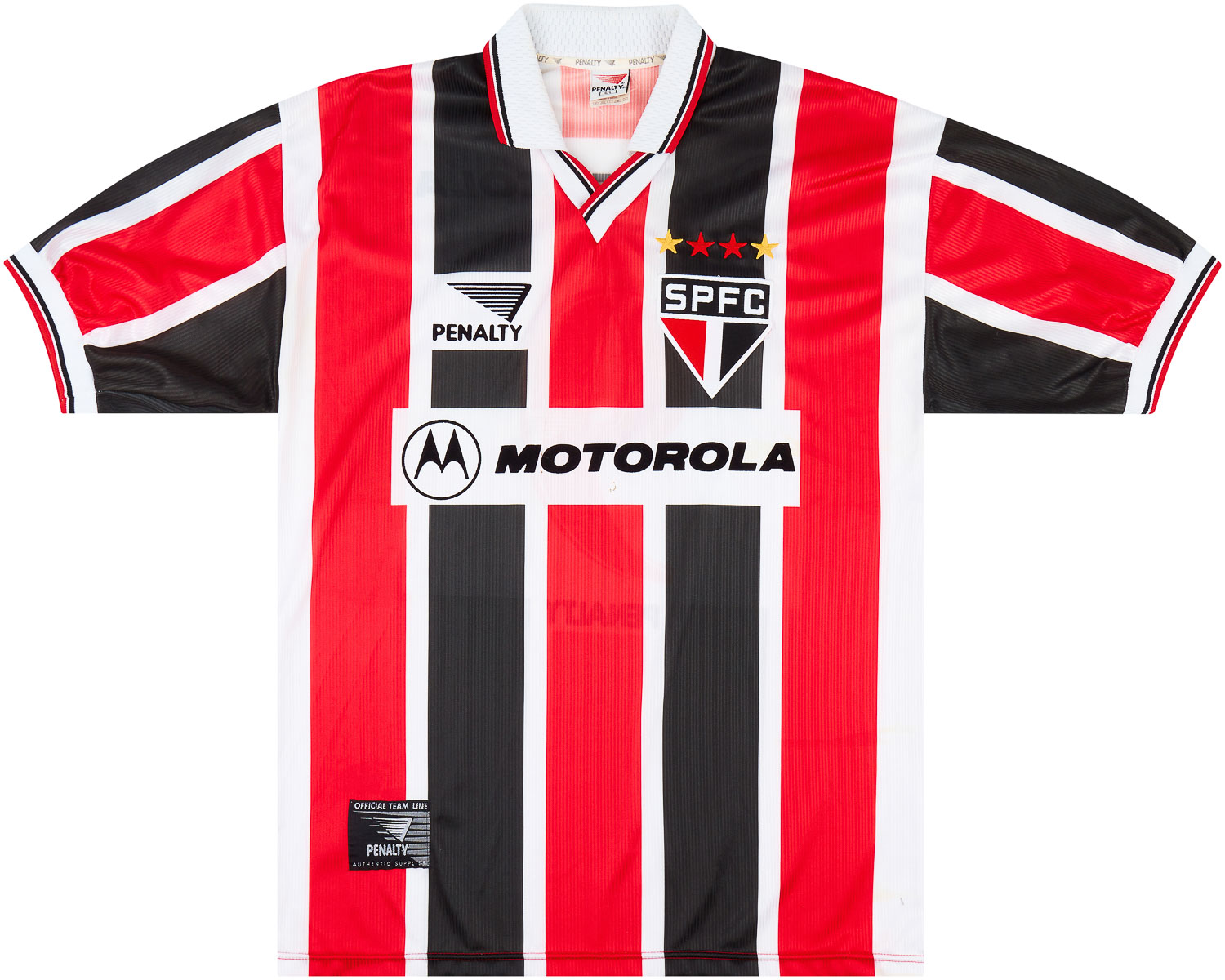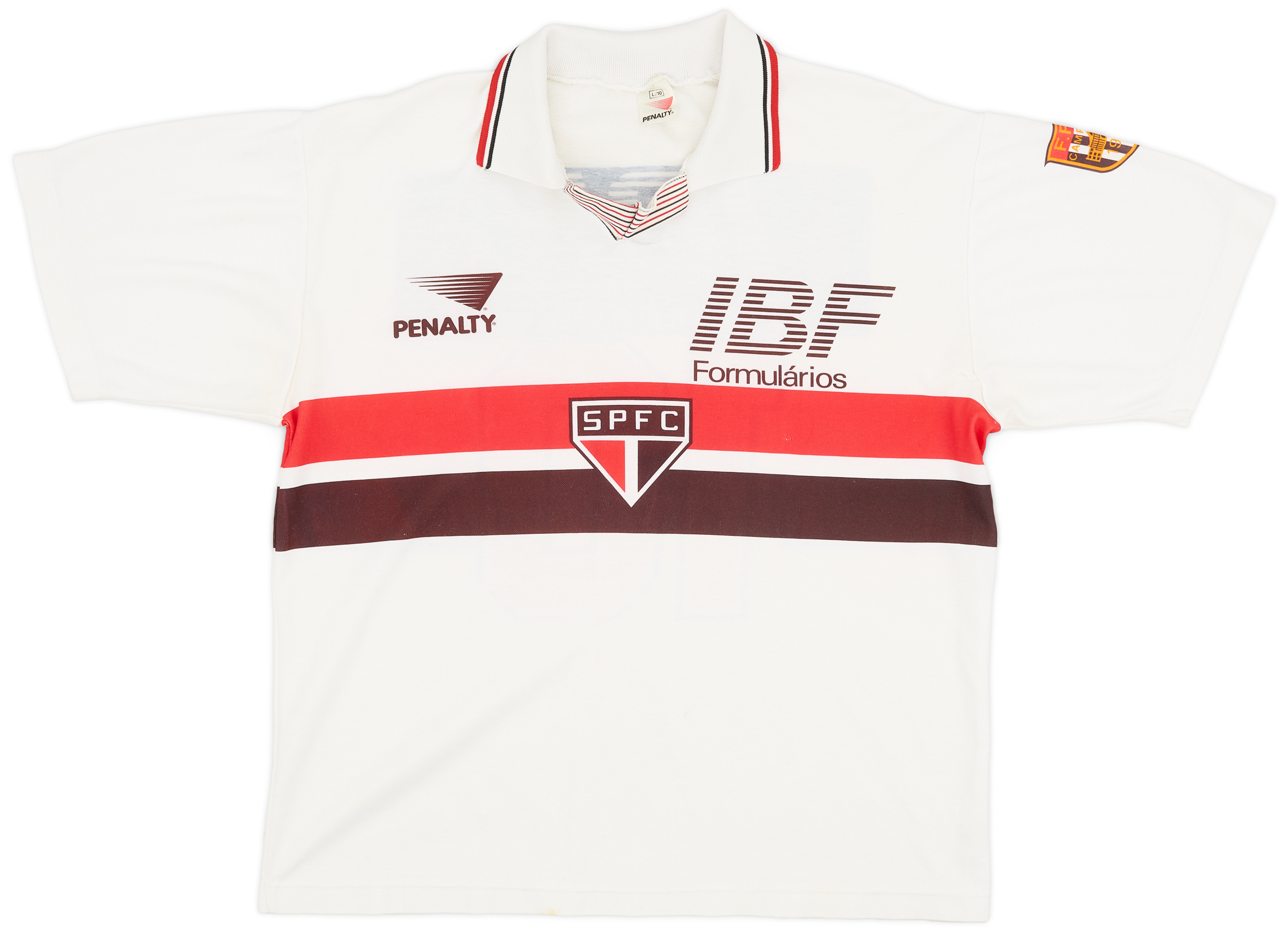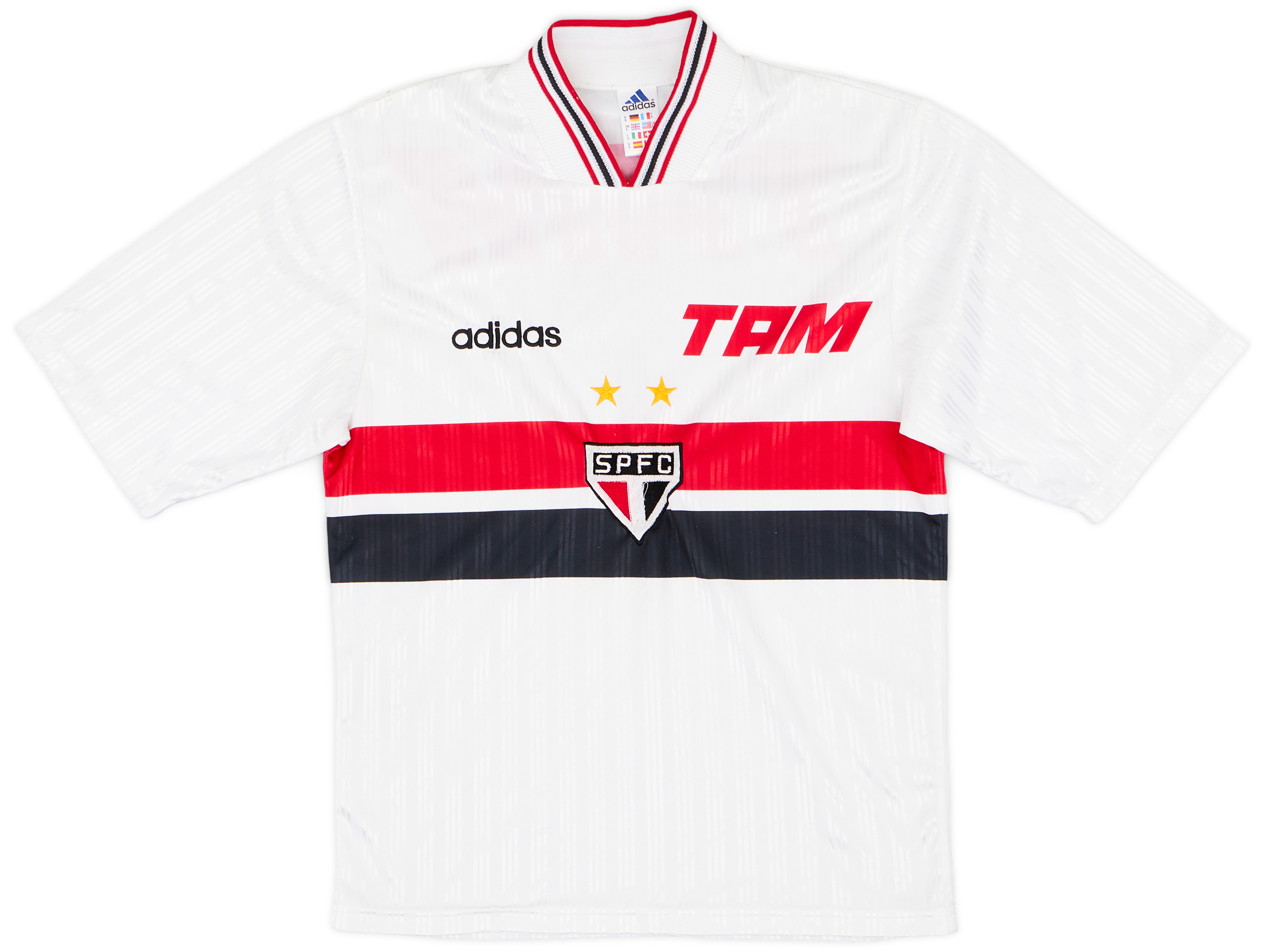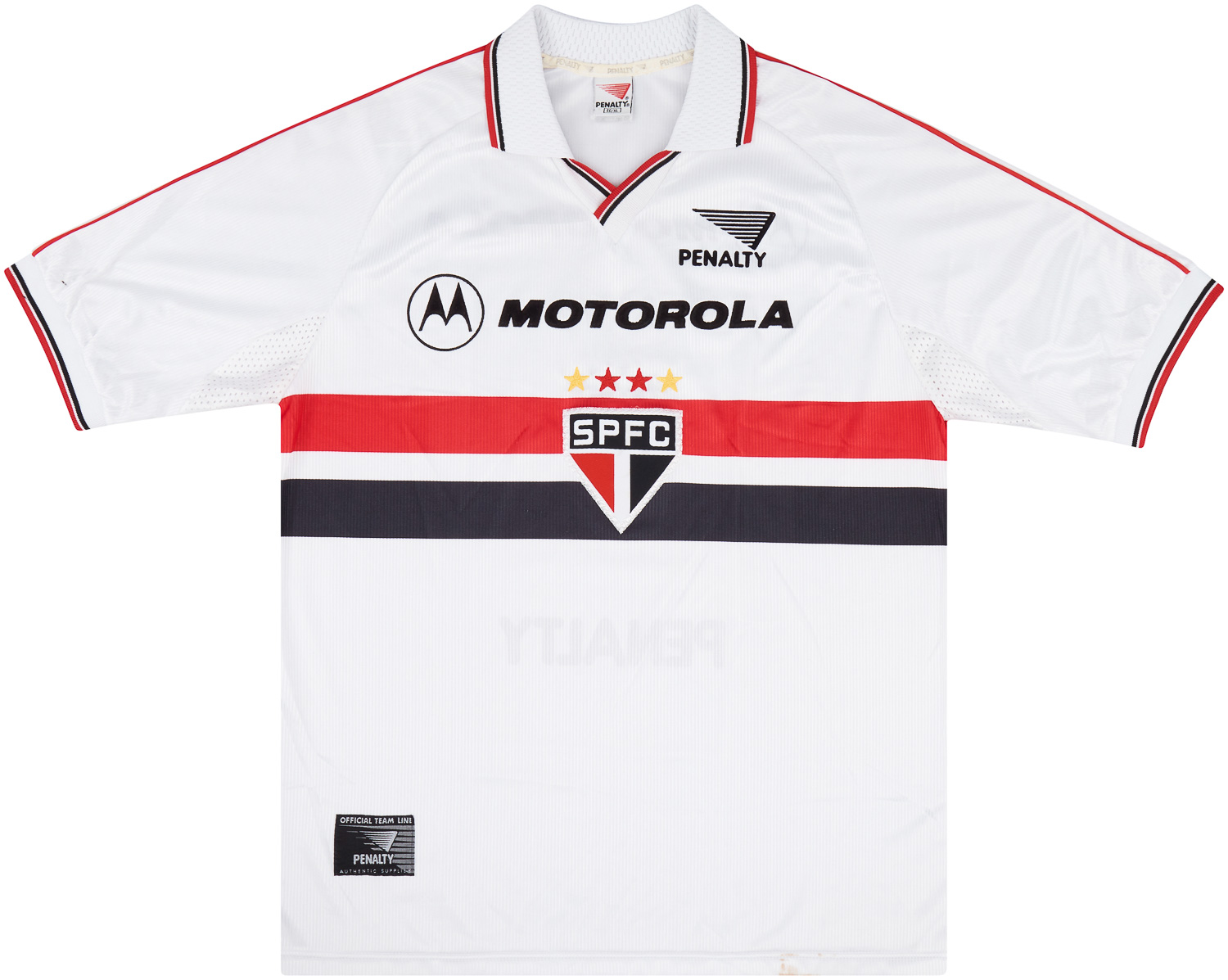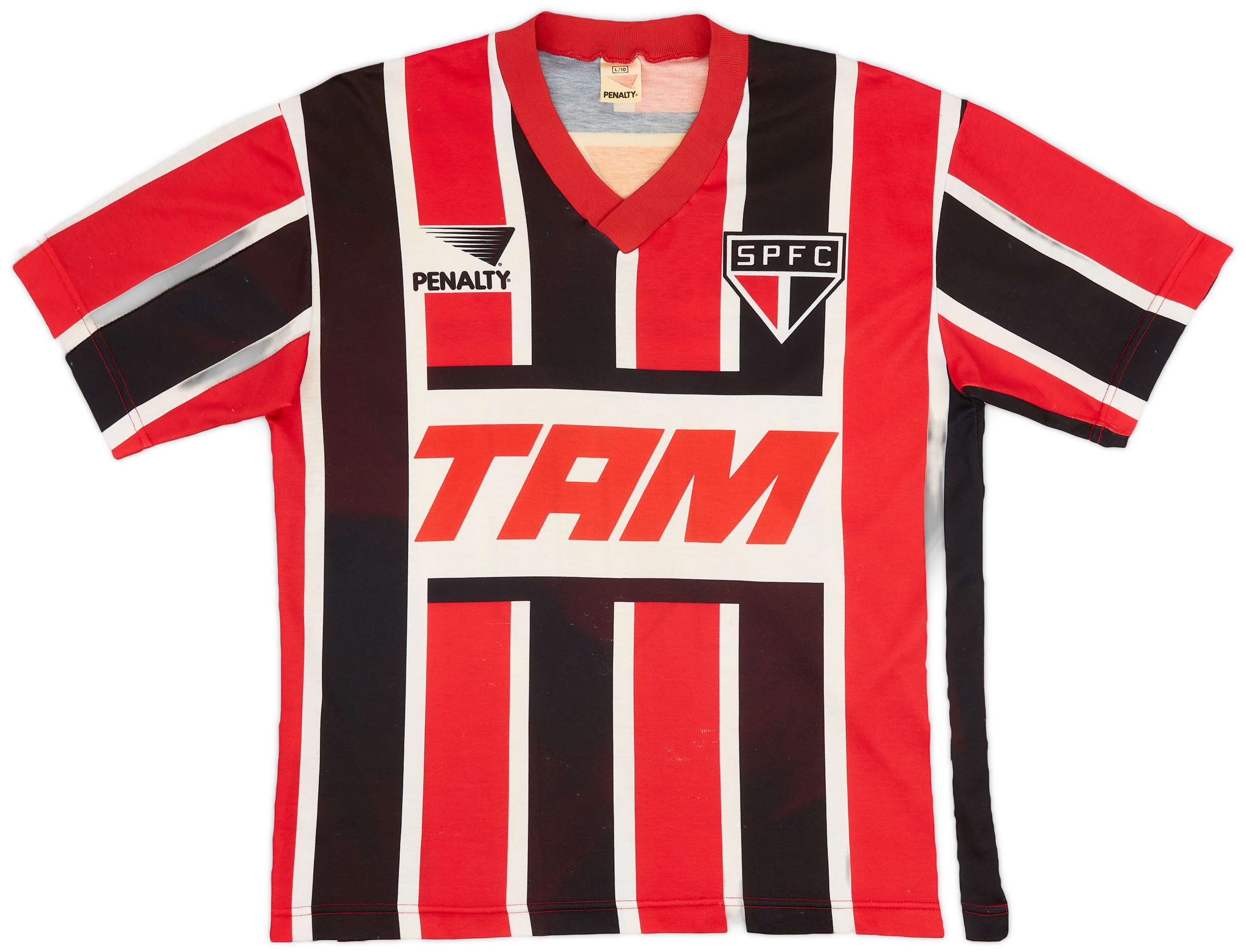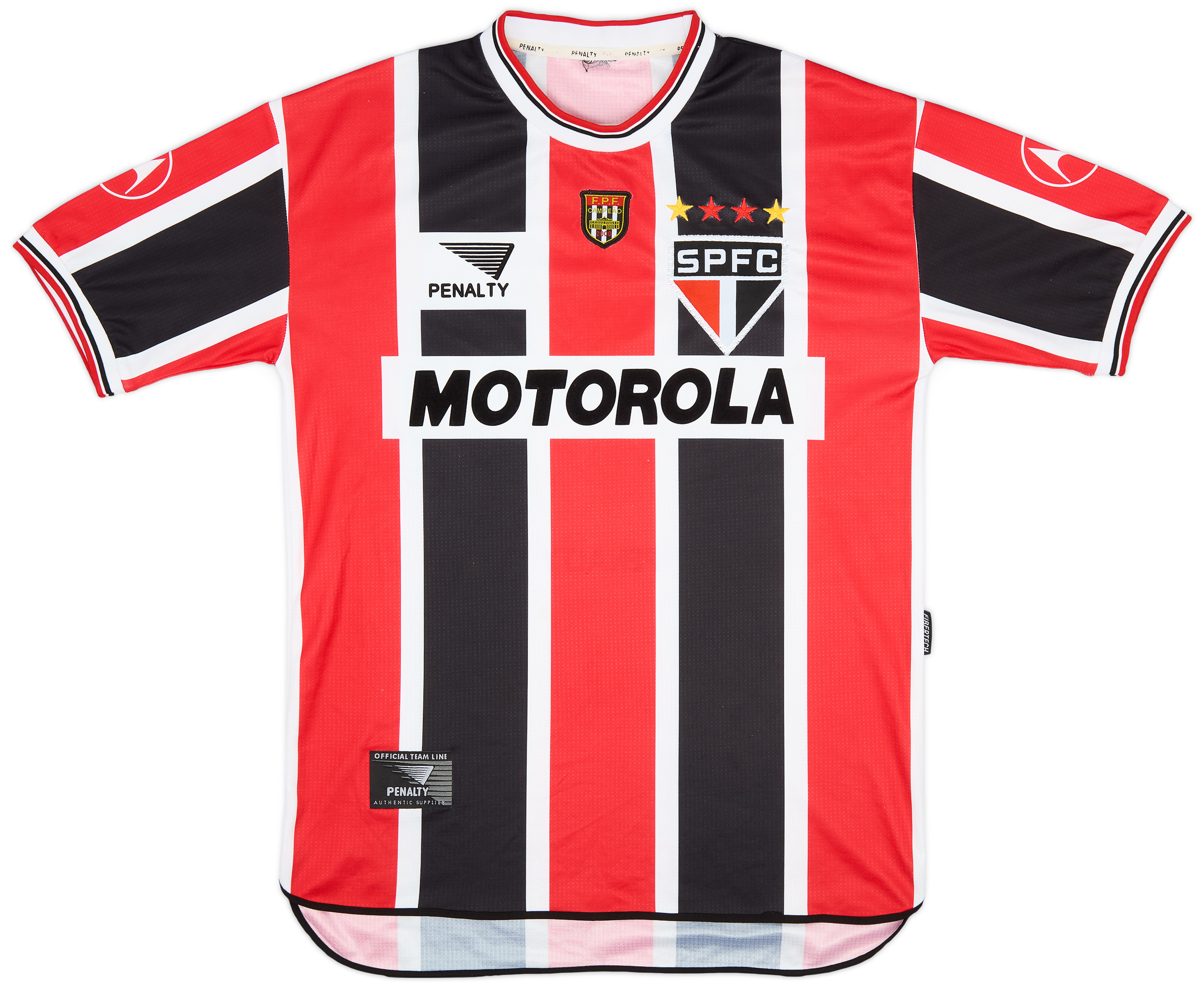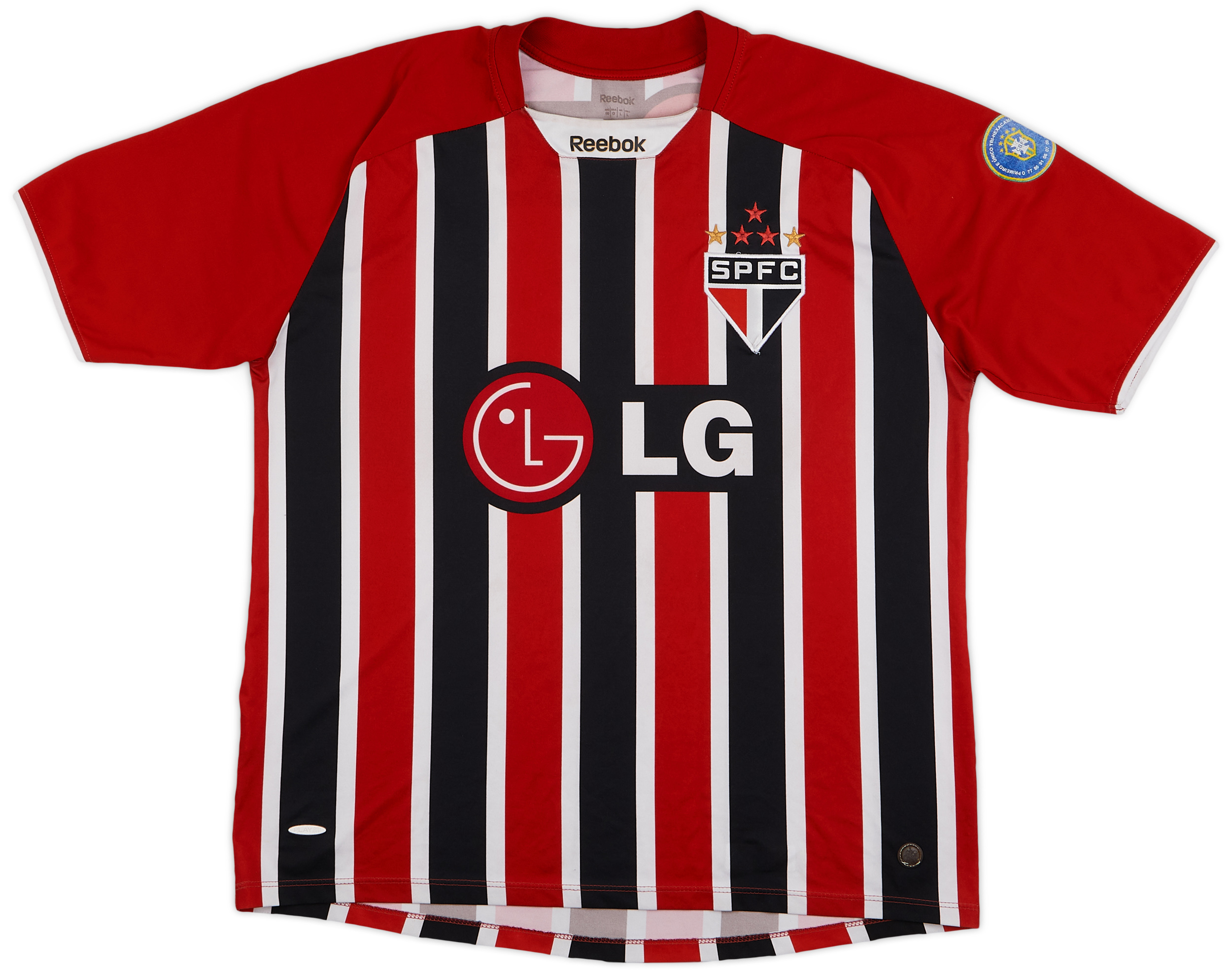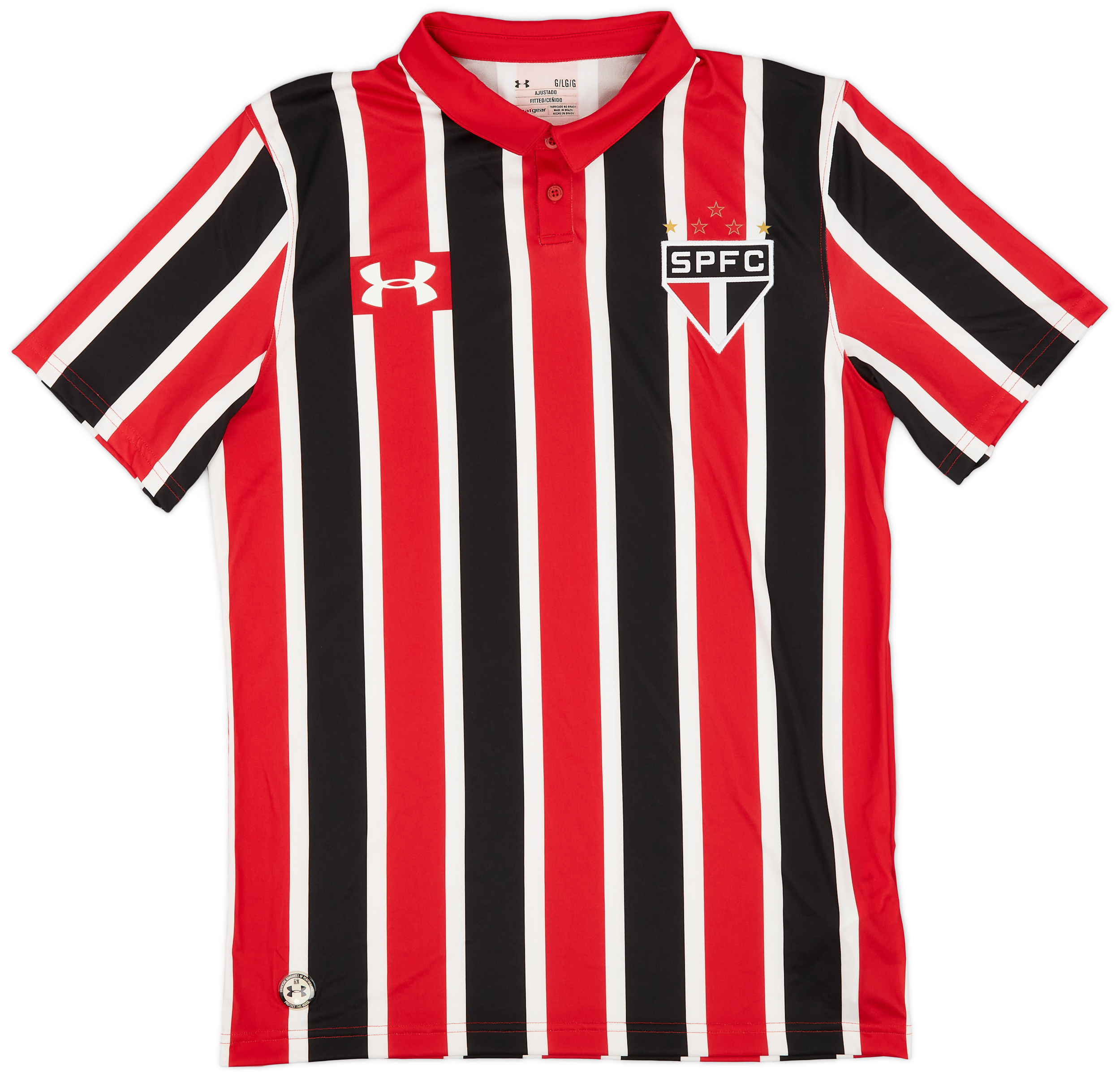Sao Paulo
Introduction São Paulo FC, one of Brazil’s most iconic football clubs, stands tall in the landscape of South American football. Founded in 1930, the club has built a reputation for excellence in both domestic and international competitions. With a rich history that combines tradition and innovation, São Paulo embodies the passion of Brazilian football. The […]
1991 Sao Paulo Home Shirt #10 - 8/10 - (M)
237.99£ - ca: €281
1998 Sao Paulo Match Issue Home Shirt Nem #24
237.99£ - ca: €281
1990 Sao Paulo Home Shirt #10 - 8/10 - (L)
237.99£ - ca: €281
1995 Sao Paulo Away Shirt #4 - 9/10 - (L)
237.99£ - ca: €281
2001 Sao Paulo Home Shirt #10 (XL)
237.99£ - ca: €281
1994 Sao Paulo Home Shirt #10 - 9/10 - (L)
226.99£ - ca: €268
1992 Sao Paulo Home Shirt - 8/10 - (L)
226.99£ - ca: €268
1992 Sao Paulo Away Shirt #10 - 9/10 - (L)
207.99£ - ca: €245
1990 Sao Paulo Home Shirt #10 - 8/10 - (XL)
207.99£ - ca: €245
1992 Sao Paulo Away Shirt - 9/10 - (XL)
207.99£ - ca: €245
1993-94 Sao Paulo Away Shirt #10 - 9/10 - (L)
207.99£ - ca: €245
1993 Sao Paulo Home Shirt #10 - 8/10 - (L)
207.99£ - ca: €245
2000 Sao Paulo Home L/S Shirt #10 - 9/10 - (L)
207.99£ - ca: €245
1993 Sao Paulo Home Shirt #10 - 9/10 - (XL)
207.99£ - ca: €245
1994 Sao Paulo Home L/S Shirt #10 (Juninho) - 9/10 - (S)
207.99£ - ca: €245
1991-92 Sao Paulo Away Shirt - 9/10 - (L)
207.99£ - ca: €245
1992 Sao Paulo Home Shirt - 9/10 - (L)
207.99£ - ca: €245
1993 Sao Paulo Home Shirt #10 - 8/10 - (L)
207.99£ - ca: €245
1995-96 Sao Paulo GK Shirt #1 (Ceni) - 9/10 - (L)
207.99£ - ca: €245
1993 Sao Paulo Home Shirt #10 - 8/10 - (L)
207.99£ - ca: €245
1992 Sao Paulo Home Shirt - 8/10 - (XL)
207.99£ - ca: €245
1992 Sao Paulo Home Shirt - 9/10 - (M)
207.99£ - ca: €245
1992 Sao Paulo Home Shirt - 9/10 - (L)
207.99£ - ca: €245
2001 Sao Paulo Home Shirt #9 (L)
207.99£ - ca: €245
1991 Sao Paulo Home Shirt - 7/10 - (L)
207.99£ - ca: €245
1993 Sao Paulo Home Shirt #10 - 9/10 - (XL)
207.99£ - ca: €245
1993 Sao Paulo Home Shirt #4 - 9/10 - (M)
207.99£ - ca: €245
1993 Sao Paulo GK Shirt #1 (Ceni) - 7/10 - (M)
207.99£ - ca: €245
1992 Sao Paulo Away Shirt - 8/10 - (L)
207.99£ - ca: €245
1993 Sao Paulo Home L/S Shirt - 7/10 - (L)
207.99£ - ca: €245
1991-92 Sao Paulo Away Shirt - 8/10 - (XL)
207.99£ - ca: €245
1990 Sao Paulo Home Shirt #10 - 8/10 - (XL)
207.99£ - ca: €245
1992 Sao Paulo Home Shirt - 9/10 - (M)
207.99£ - ca: €245
1992 Sao Paulo Home Shirt #10 - 9/10 - (XL)
207.99£ - ca: €245
1993-94 Sao Paulo Away Shirt #10 (Leonardo) - 9/10 - (XL)
207.99£ - ca: €245
2003 Sao Paulo Home L/S Shirt #10 - 8/10 - (XL)
177.99£ - ca: €210
1994 Sao Paulo Away Shirt #10 - 8/10 - (L)
177.99£ - ca: €210
2000 Sao Paulo Home Shirt - 8/10 - (L)
177.99£ - ca: €210
1994 Sao Paulo Home Shirt #10 (Juninho) - 8/10 - (XL)
177.99£ - ca: €210
1996 Sao Paulo Home Shirt - 8/10 - (L)
177.99£ - ca: €210
1994 Sao Paulo Home Shirt - 8/10 - (L)
177.99£ - ca: €210
1992 Sao Paulo Home Shirt #10 (Rai) - 7/10 - (L)
177.99£ - ca: €210
2001 Sao Paulo Away Shirt - 8/10 - (M)
177.99£ - ca: €210
1994 Sao Paulo Home Shirt #10 (Juninho) - 9/10 - (XL)
177.99£ - ca: €210
1994 Sao Paulo Home Shirt #13 - 9/10 - (L)
177.99£ - ca: €210
2000 Sao Paulo Away Shirt #8 - 8/10 - (L)
177.99£ - ca: €210
1994 Sao Paulo Home Shirt - 8/10 - (L)
177.99£ - ca: €210
1993 Sao Paulo Home Shirt - 8/10 - (L)
177.99£ - ca: €210
1994 Sao Paulo Home Shirt #10 (Juninho) - 8/10 - (XL)
177.99£ - ca: €210
1992 Sao Paulo Away Shirt - 7/10 - (L)
177.99£ - ca: €210
1993 Sao Paulo Home Shirt #7 - 7/10 - (L)
177.99£ - ca: €210
1996 Sao Paulo Home Shirt - 8/10 - (M)
177.99£ - ca: €210
1993-94 Sao Paulo Away Shirt #10 - 9/10 - (M)
177.99£ - ca: €210
1992 Sao Paulo Home Shirt #10 - 7/10 - (L)
177.99£ - ca: €210
1993 Sao Paulo Home Shirt #10 - 7/10 - (L)
177.99£ - ca: €210
1993-95 Sao Paulo Away Shirt - 8/10 - (L)
177.99£ - ca: €210
1993-94 Sao Paulo Away Shirt - 8/10 - (L)
177.99£ - ca: €210
1996 Sao Paulo Home Shirt - 9/10 - (L)
177.99£ - ca: €210
1998 Sao Paulo Home Shirt #7 - 9/10 - (L)
161.99£ - ca: €191
1996 Sao Paulo Home Shirt - 8/10 - (S)
149.99£ - ca: €177
1999 Sao Paulo Home Shirt #10 - 7/10 - (XXL)
148.99£ - ca: €176
2000 Sao Paulo Home Shirt - 6/10 - (XL)
148.99£ - ca: €176
1998 Sao Paulo Home Shirt #7 - 8/10 - (L)
148.99£ - ca: €176
1993 Sao Paulo Home Shirt - 7/10 - (M)
148.99£ - ca: €176
1994 Sao Paulo Home Shirt - 7/10 - (L)
148.99£ - ca: €176
1993-94 Sao Paulo Away Shirt #10 - 6/10 - (L)
148.99£ - ca: €176
2009 Sao Paulo Away Shirt #10 (Hernanes) - 8/10 - (XL)
118.99£ - ca: €140
1994 Sao Paulo Home Shirt #10 - 5/10 - (L)
118.99£ - ca: €140
2000-01 Sao Paulo Away Shirt - 8/10 - (L)
118.99£ - ca: €140
2000-01 Sao Paulo Away Shirt - 9/10 - (XL)
118.99£ - ca: €140
2009 Sao Paulo Away Shirt #11 (Arouca) - 8/10 - (L)
118.99£ - ca: €140
2015 Sao Paulo Home Shirt (XXL)
106.99£ - ca: €126
2015 Sao Paulo Home Shirt (XXL)
94.99£ - ca: €112
2015 Sao Paulo Home Shirt (XXL)
94.99£ - ca: €112
2015 Sao Paulo Home Shirt (XXL)
94.99£ - ca: €112
2014 Sao Paulo Special Edition Home Shirt - 7/10 - (M)
82.99£ - ca: €98
1990s Sao Paulo Penalty Training Shirt - 7/10 - (M)
82.99£ - ca: €98
2016-17 Sao Paulo Away Shirt - 9/10 - (L)
70.99£ - ca: €84
2002 Sao Paulo Penalty Training Shirt - 9/10 - (XL)
70.99£ - ca: €84
2017 Sao Paulo Home Shirt - 6/10 - (L)
58.99£ - ca: €70
2000s ',1970', Sao Paulo Topper Retro Home L/S Shirt - 5/10 - (L)
47.99£ - ca: €57
Warning: A non-numeric value encountered in /var/www/netskribent.dk/retro-football-shirt.com/wp-content/themes/boot5/single-clubs.php on line 148
Introduction
São Paulo FC, one of Brazil’s most iconic football clubs, stands tall in the landscape of South American football. Founded in 1930, the club has built a reputation for excellence in both domestic and international competitions. With a rich history that combines tradition and innovation, São Paulo embodies the passion of Brazilian football. The team’s striking red, black, and white colors symbolize unity, strength, and resilience, echoing the spirit of its vibrant fanbase.
Club History
São Paulo FC was founded on January 25, 1930, from the merger of two clubs: Associação Atlética das Palmeiras and Club Athletico Paulistano. The aim was to create a strong football entity to represent the city of São Paulo. The club’s early years were marked by a struggle for recognition and success within the competitive landscape of Brazilian football. However, growth came quickly; by the late 1930s, São Paulo was already establishing itself as a formidable force in the Campeonato Paulista. The 1940s would see the club win its first official title, paving the way for decades of achievement.
Achievements
São Paulo FC boasts an impressive array of titles that underline its status in Brazilian and international football. The club has won the Campeonato Brasileiro Série A six times, with victories in 1977, 1986, 1991, 1992, 1993, and 2008. However, its most celebrated accomplishments came on the continental and global stage. The club has won the prestigious Copa Libertadores three times, in 1992, 1993, and 2005. Following their Copa Libertadores triumphs, São Paulo also claimed the FIFA Club World Cup in 2005, defeating the English club Liverpool in a memorable final. With over 30 domestic trophies, São Paulo continues to be a powerhouse in Brazilian football.
Significant Players and Matches
Over the decades, São Paulo FC has been home to a plethora of legendary footballers. Among the most notable is Raí, who not only captained the team to its first Copa Libertadores title but also played a crucial role in the club’s identity during the 1990s. Other standout players include Cafu, a two-time FIFA World Cup winner who started his illustrious career at the club, and Rogério Ceni, renowned for being one of the most successful goalkeepers in football history. Ceni, a one-club man, is celebrated for his goal-scoring prowess and leadership, amassing over 1,200 appearances for the team and scoring more than 130 goals—an astonishing record for a goalkeeper.
Landmark matches include the 1993 Copa Libertadores final, where São Paulo overcame Universidad de Chile, securing a 3-0 victory in the decisive match. Another monumental game was the 2005 FIFA Club World Cup final against Liverpool, which ended in a 1-0 win, engraving São Paulo’s legacy as a global contender.
Cultural Impact
The cultural significance of São Paulo FC extends far beyond the pitch. The club represents more than just football; it embodies the diverse identity of São Paulo city. With a huge and passionate fanbase known as “tricolores,” the club plays a vital role in the local community, hosting events and initiatives that promote social inclusion and engagement. The supporters stand behind their team at the iconic Morumbi Stadium, known for its electric atmosphere during matches. São Paulo FC has also engaged in numerous community projects, emphasizing education and soccer as tools for social development. The club’s influence resonates within music, fashion, and local culture, making it a key player in the Sãu Paulo cityscape.
Conclusion
In summary, São Paulo FC is not just a football club but a cornerstone of Brazilian football history. With a legacy built on success, memorable players, and a passionately loyal fanbase, the club has made an indelible mark on the game. Its achievements in domestic competitions and international tournaments testify to its excellence, while its cultural impact cements its status in the hearts of fans. As one of the premier clubs in South America, São Paulo FC continues to inspire new generations of players and supporters, ensuring that its influence on the beautiful game endures.


